Contents
Guide

North Koreas Foreign Policy
North Koreas Foreign Policy
The Kim Jong-un Regime in a Hostile World
Edited by Scott A. Snyder and Kyung-Ae Park
ROWMAN & LITTLEFIELD
Lanham Boulder New York London
Published by Rowman & Littlefield
An imprint of The Rowman & Littlefield Publishing Group, Inc.
4501 Forbes Boulevard, Suite 200, Lanham, Maryland 20706
www.rowman.com
86-90 Paul Street, London EC2A 4NE
Copyright 2023 by The Rowman & Littlefield Publishing Group, Inc.
All rights reserved . No part of this book may be reproduced in any form or by any electronic or mechanical means, including information storage and retrieval systems, without written permission from the publisher, except by a reviewer who may quote passages in a review.
British Library Cataloguing in Publication Information Available
Library of Congress Cataloging-in-Publication Data
Names: Snyder, Scott, 1964- author. | Park, Kyung-Ae, 1955- author.
Title: North Koreas foreign policy : the Kim Jong-un regime in a hostile world / Scott A. Snyder and Kyung-Ae Park.
Other titles: Kim Jong-un regime in a hostile world
Description: Lanham : Rowman & Littlefield, [2023] | Series: Asia in world politics | Includes bibliographical references and index.
Identifiers: LCCN 2022039748 (print) | LCCN 2022039749 (ebook) | ISBN 9781538160299 (cloth) | ISBN 9781538160305 (paper) | ISBN 9781538160312 (ebook)
Subjects: LCSH: Korea (North)Foreign relations21st century. | Korea (North)Politics and government2011- | Kim, Chong-un, 1984
Classification: LCC DS935.65 .S693 2023 (print) | LCC DS935.65 (ebook) | DDC 327.5193dc23/eng/20220920
LC record available at https://lccn.loc.gov/2022039748
LC ebook record available at https://lccn.loc.gov/2022039749
 The paper used in this publication meets the minimum requirements of American National Standard for Information SciencesPermanence of Paper for Printed Library Materials, ANSI/NISO Z39.48-1992.
The paper used in this publication meets the minimum requirements of American National Standard for Information SciencesPermanence of Paper for Printed Library Materials, ANSI/NISO Z39.48-1992.
The production of a multiauthored volume on a topic such as North Korea always entails a high tolerance for uncertainty and risk. We experienced that uncertainty and risk as coeditors of North Korea in Transition: Politics, Economics, and Society , published almost a decade ago by Rowman & Littlefield following the death of Kim Jong-il. Kim Jong-ils death and Kim Jong-uns succession generated a wide range of speculation and uncertainty both about North Koreas stability and its future and about the book project, given that authors had already begun to write chapter drafts at the time of Kim Jong-ils passing. More importantly, it required a steady hand and confidence from our editor, Susan McEachern.
Consequently, we were gratified that prior to her retirement from Rowman & Littlefield in 2021, Susan invited us to submit a proposal for a new edited volume evaluating the first decade of North Koreas foreign policy under Kim Jong-un. Susan approached us at the encouragement of Samuel Kim, who has been so prolific in his own analysis of North Korea, China, and globalization for decades. We owe a debt of gratitude to both Susan and Samuel for the opportunity to lead this assessment of Kim Jong-uns impact on North Korean foreign policy following his first decade in power. We dedicate this volume to both of them in recognition of their extensive contributions to the field of Asian studies over many decades.
We primarily owe our thanks to an excellent team of global contributors, all of whom performed ably to provide incisive analysis as well as to meet our deadlines and field our follow-up inquiries. We are pleased that this is truly a global project that includes analysts with a diverse range of backgrounds and perspectives. Financial support for the project came from the Knowledge Partnership Program at the University of British Columbia, under the direction of Kyung-Ae Park. The editors would like to thank Huilin Gao for her administrative support and to acknowledge the excellent editorial and research contributions of Ellen Swicord and Jennifer Ahn in support of the production of the volume. We are grateful to Ashley Dodge, Haley White, and Katelyn Turner at Rowman & Littlefield for their support throughout the editorial and publishing process.
. North Korean Nuclear Tests
. Cost Estimate for North Koreas Nuclear Program under Kim Jong-il
. Mentions in Kim Jong-uns New Year Addresses
. North Korean Missiles and Tests (Known)
. Sanctions against North Korea
. Leadership Summits between China and North Korea (1950present)
. North Korean Provocations and UN Sanctions (20122017)
. North Koreas Cyber Activity Clusters Based on TTPs
Scott A. Snyder
When Kim Jong-un came to power in December 2011, many were skeptical that a young man in his twenties who had formally trained to succeed his father for less than three years could consolidate power internally, guide his country toward his self-proclaimed goal of being a strong and prosperous nation, or effectively represent North Korea internationally. Kims early prioritization of parallel military and economic development, known as the byungjin policy, looked more like an attempt to strengthen his domestic legitimacy on the basis of his grandfather Kim Il-sungs legacy than a practical effort to address North Koreas considerable economic and security difficulties. Kims seemingly unrealistic pursuit of internal economic reforms alongside nuclear and missile development, however, signaled his audacious goal of transforming both North Korea and its position in the world.
A decade later, Kim is the longest-serving head of state in Northeast Asia, now dealing with his third American and fourth South Korean presidents. Kim has built on the nuclear legacy inherited from his father, Kim Jong-il, by expanding the size of North Koreas nuclear arsenal and extending the reach of North Koreas missiles to an intercontinental range. For the first time, Kim is on the verge of gaining the ability to credibly threaten to destroy any city in the world. His ongoing commitment to military development reveals his aspiration to engage with the world from a position of strength, but it also reinforces international perceptions of a nuclear North Korea as a grave threat to international security. Kim Jong-un has made good on his pledge to make North Korea stronger but has failed thus far to make North Korea richer. Though Kim has expanded North Koreas reach as a threat to international security, the country continues to suffer from economic stagnation and political isolation.
Kim appeared intent on improving North Koreas domestic economic circumstances in the early days of his assumption of power. But despite the promise he made never to ask his people to tighten their belts in his inaugural public speech in April 2012, Kim has struggled to bring prosperity to North Korea. Kims early experimentation with partial privatization, marketization, and establishment of Special Economic Zones ( SEZs ) raised hopes that he would launch North Koreas economic development by integrating North Korea with the global economy. Under Kims leadership, relaxed attitudes toward private exchanges enabled North Korean economic growth rates to increase steadily as the government regulated but did not stand in the way of informal markets as the primary means of economic exchange. North Korean traders got rich, and a new class of moneylenders backed new ventures, including cross-border exchanges that integrated North Korea more deeply into the global economy.

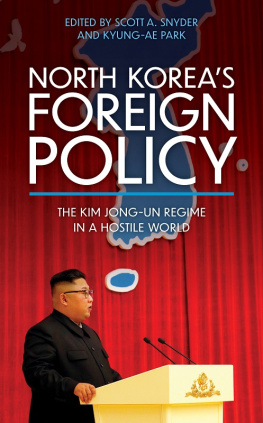

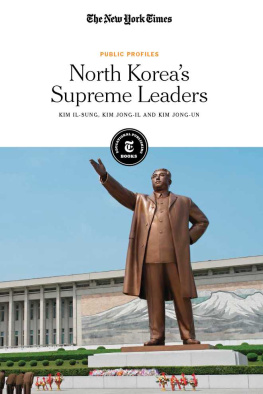

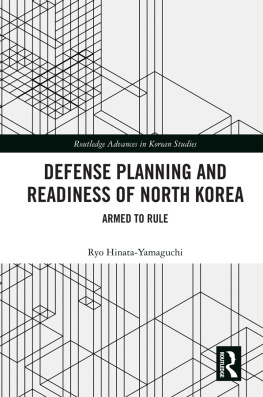
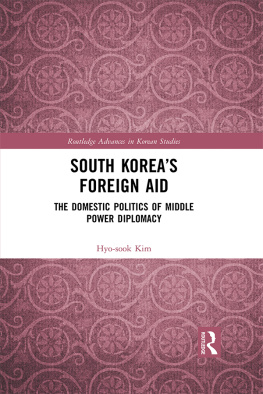
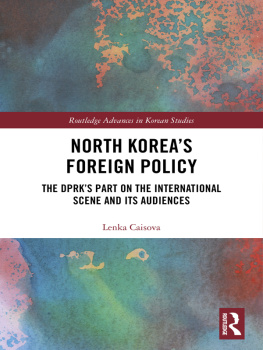
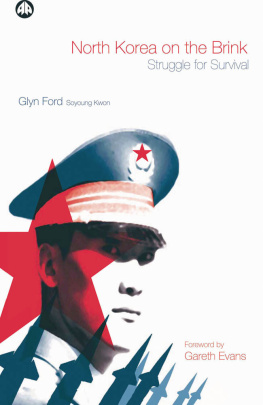
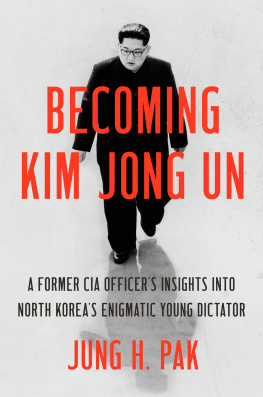
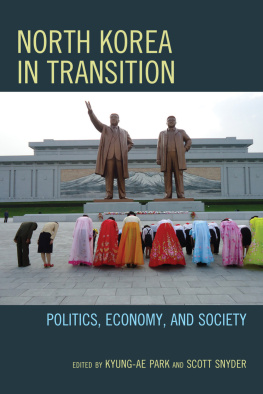
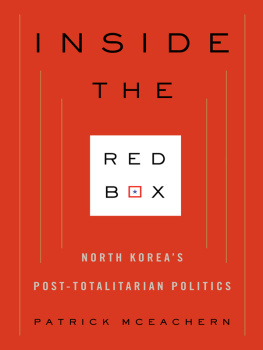

 The paper used in this publication meets the minimum requirements of American National Standard for Information SciencesPermanence of Paper for Printed Library Materials, ANSI/NISO Z39.48-1992.
The paper used in this publication meets the minimum requirements of American National Standard for Information SciencesPermanence of Paper for Printed Library Materials, ANSI/NISO Z39.48-1992.